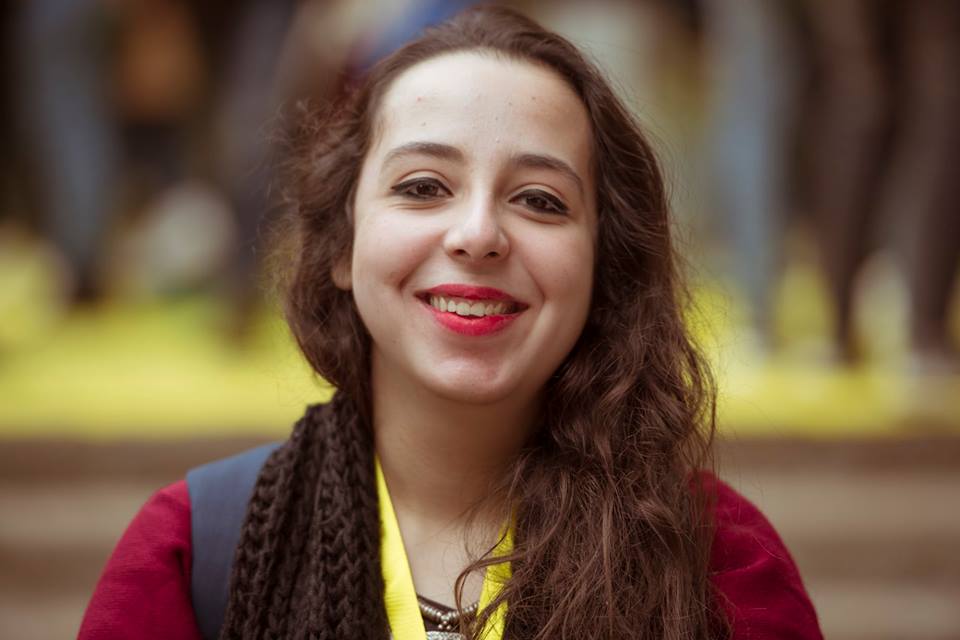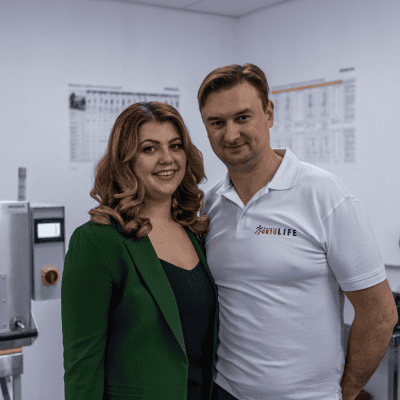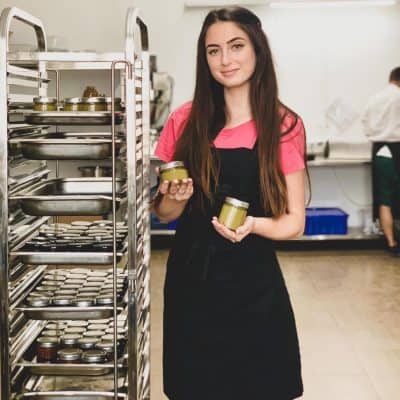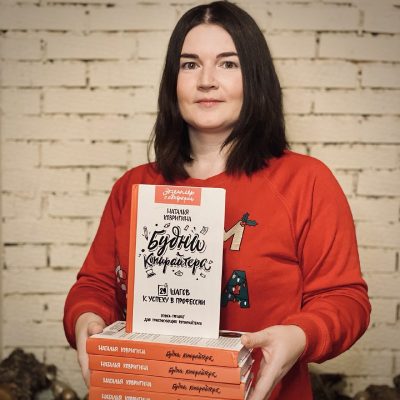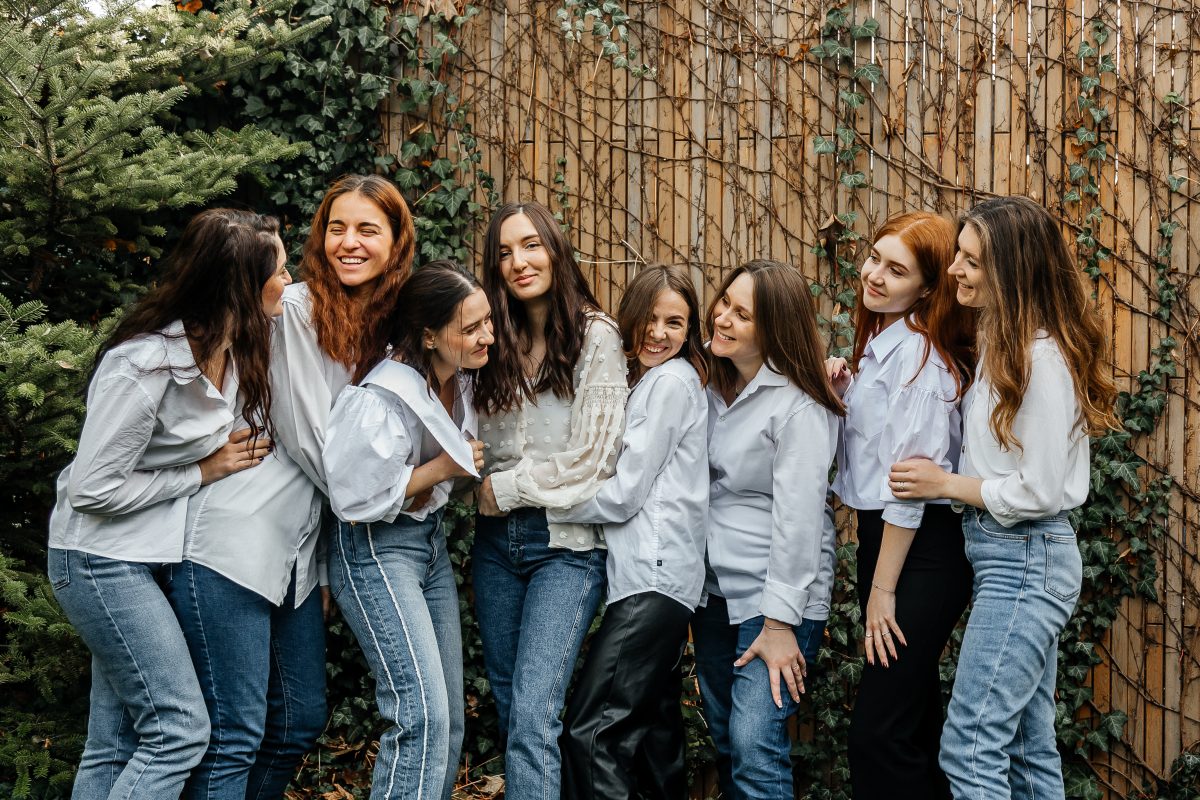
Creating a resilient team and business amid crisis: Lessons from Kuki Jewelery
Being an entrepreneur doesn’t always look like taking huge risks, giving it your all, and placing all your bets on one idea that will change the world.
A lot of the time, being an entrepreneur is about having a skill or knowledge that you want to use to build something good. Something that you can shape based on your own values, build with your family and utilize to create better jobs for others in your community.
Meet Anastasia Cunetchi, founder of Kuki Jewelry. Kuki is a jewelry design, production and marketing company. Ku(cu)ki(chi) is an acronym derived from Anastasia’s last name (Cunetchi). From the brand name itself, Anastasia sets the unique and central role that family plays in her business, and how family and work can be balanced and intertwined.
With a background and economics and advertising, Anastasia had the foundation to take on starting and building a business, but it wasn’t always on her mind.
What was on her mind was her passion; collecting earrings. When she was on a maternity leave, she spent her time designing earrings from clay as a way to get some stress relief.
It started out 7 years ago as a side project, where she and her husband built a simple website for the products as part of an assignment for her husband’s IT studies. With the website in place, they then experimented with selling her designs on Facebook.
Today, Kuki Jewelry works with local suppliers in Moldova and seven factories across Europe and Asia to create artisan jewelry from different types of material.
“I worked with polymer clay, incorporating printed designs and glass pendants, then when I was more secure in the process and we had traction going, it evolved to engraving on metal.”

Progress isn’t a linear road
Anastasia highlighted three main challenges that she experienced as an entrepreneur. She cites three times where she was close to giving up, and how they made it through:
- First: Growing my business when I still couldn’t rely on it to make a living
I started Kuki when I was on maternity leave, but I had to get back to my full-time job. By that time, we had more people helping us, but we didn’t have anyone who was fully dedicated to the business. I was working all the time, and felt like I couldn’t really commit to my business. At that time, two people also had to leave the team.
- Second: Having our second child, and our second shop, right as the pandemic hit
At this point, by the start of 2020, we had grown enough that we felt confident to take a step and open a second shop. It was around the same time where I was having my second child. So, in the middle of all of that, the pandemic happened. It was a struggle; how to keep sales going so we can keep our employees and not have to let anyone go? So that we can keep our space?
- Third: Making the right decisions amidst the situation created by the war
For me, with the onset of the war, the main struggle was the psychological impact. Nobody knew what the right decision was. We thought: maybe we should close, maybe we should run. No one was really buying at the time; there were other priorities to worry about. And our team members were going through the same struggles.
Ultimately, we decided to stay, to try to invest in keeping everyone on board and work with the new circumstances. But, we still lost suppliers and clients, so it was rough.
How to take the right kind of risks for you
With the goal of improving sales and keeping the business afloat as her main priority of the year, Anastasia applied for the FEMEIE program. With the financial support of the program, they could improve their positioning and outreach efforts. Throughout the last six months, the efforts already yielded results as they have seen major improvements in the number of visitors that came to their shop through their marketing campaigns. They have also used the support to be able to maintain their pricing, create better offers and increase engagement with their customers.
“I am very risk averse, I don’t like to work with something I don’t know. But, the truth is, nothing will change if I don’t do things differently. I can’t grow if I don’t try things. With the program, I am finding more encouragement to take risks and how to better calculate them. So far, I got the chance to experiment with new tools and approaches to business development that I haven’t used before. I have received a lot of knowledge that helps me figure out what I should implement, how it will help me, what’s for me and what’s not for me.”
With the FEMEIE program, Anastasia is working to maintain her team and grow her business so that she is able to fully sustain a steady income through her work.
“My team is also benefiting from the program, my colleague is going through a development journey along with me, taking on the learnings of the program. I also rely on this community of women entrepreneurs that we have created through the program. We understand each other, we have similar challenges and crisis, and it helps a lot when someone understands what you are going through and how difficult it can be.”
Through the program, she is also working with Christina Piell as her mentor. Through the mentorship, Christina is supporting Anastasia in improving her business.
“My mentor looks at my business from a helicopter view, so she sees it a bit different and gives me the tools and questions that I can use to look at my business from different angles.”
Doing your part as a small business
One of the sessions of the FEMEIE program focused on sustainability, delivered by Aina Idrisova, from the Ecovisio team. Ecovisio is a nonprofit organization founded in 1999 and dedicated to pushing forward sustainable development and environmental protection in Moldova.
The session focused on four things that small businesses can do:
- Using resources (e.g. water and textiles) efficiently and avoid incorporating hazardous chemicals into your production process.
- Using high quality and environmentally friendly materials that can decompose naturally (or be recycled). Consumers often consider a company’s environmental footprint before purchasing and are more likely to invest more in sustainable goods.
- Encouraging consumers to buy only what they need. Part of environmental sustainability is promoting mindful consumption and reducing industries that operate on fast production, consumption and wear-and-tear cycles.
- Utilizing the principle of eco-management (Or green management), which means actively prioritizing environmental protection and developing your strategy, processes, projects and programs on the basis of eco-efficiency and eco-justice principles.
Building up on the learnings from the session, Anastasia incorporates sustainability principles in Kuki. “We invest in recycling and reusing materials and avoiding waste across all our resources.”
Anastasia also spoke of sustainable development when it comes to people, and the impact that they want to leave behind.
“All our outreach campaigns are driven by our values, and so is the work that we create. We always want to push forward the message to give space for yourself, focus on your well-being, enjoy your moments and work on bettering yourself. And we carry that over to the team as well; we focus a lot on the professional development of our team. We want to create a nurturing environment that people can grow in and feel confident in moving forward after when the time comes.”
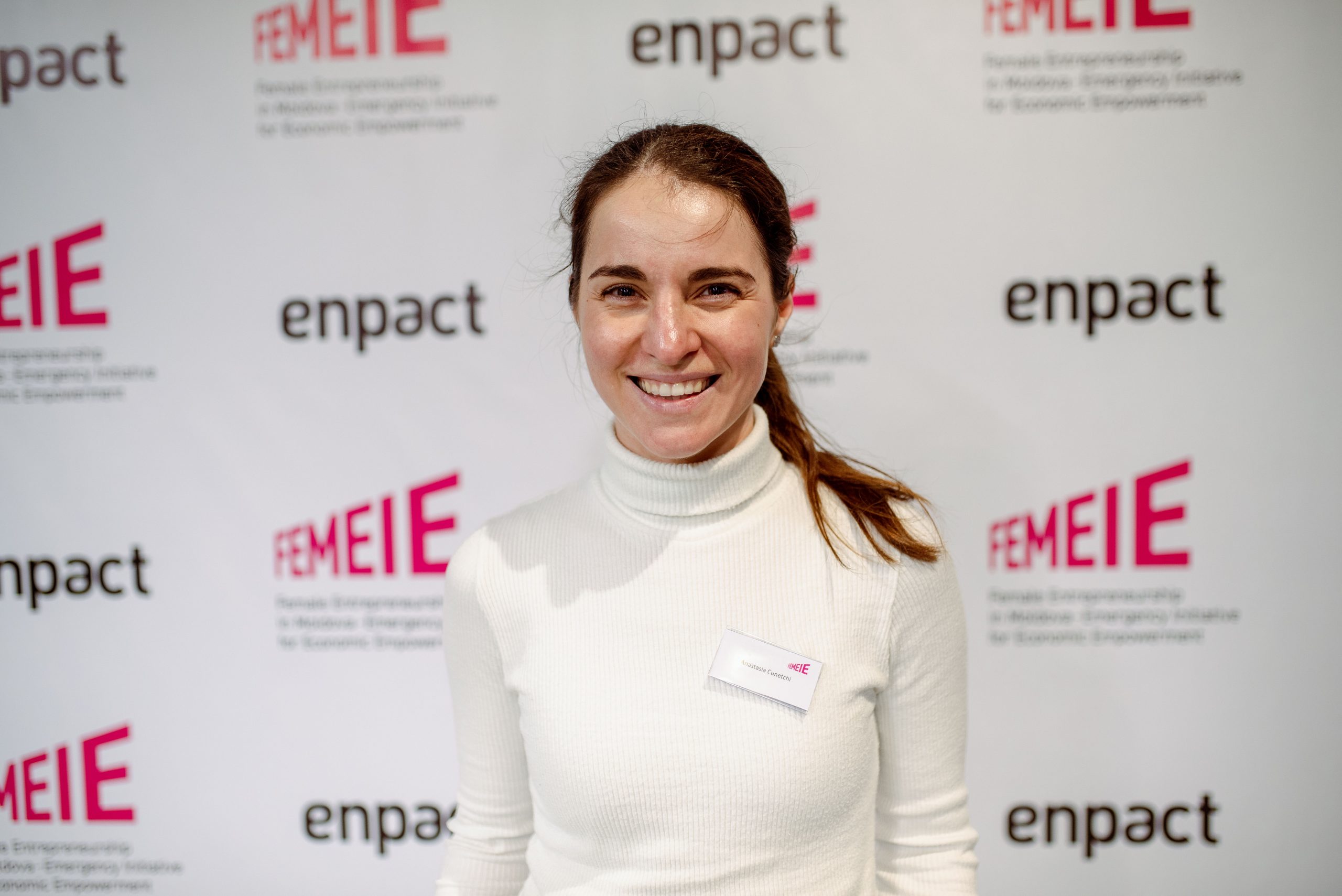
Helping others grow
Seven years in the life cycle of a business may be short, but there is so much that you can learn during that time. Anastasia shares the top four learnings from her journey.
- Delegate. Delegate more. Give your team the mandate to develop and work on their own projects. Don’t do everything for them, but trust them instead, because that’s the only way they – and you – can grow. I struggled a lot with that at first.
- Take time at the beginning of the year to work on your strategy and involve your team in the process. Carve out dedicated time for it and involve them in the development. Revisit your vision and mission, and make sure that everyone understands the path forward and is aligned on the goals.
- Have several small projects within your business that you’re always working towards every year. This project can be anything; from creating a new management position, to investing in a new type of product. Not all of them will succeed, but it helps to set exciting goals for every year.
- Surround yourself with people who you can get along with and have professional chemistry with. It’s very important that you have a clear process for selecting every person on your team, and to create an environment where people give each other energy, not drain it.
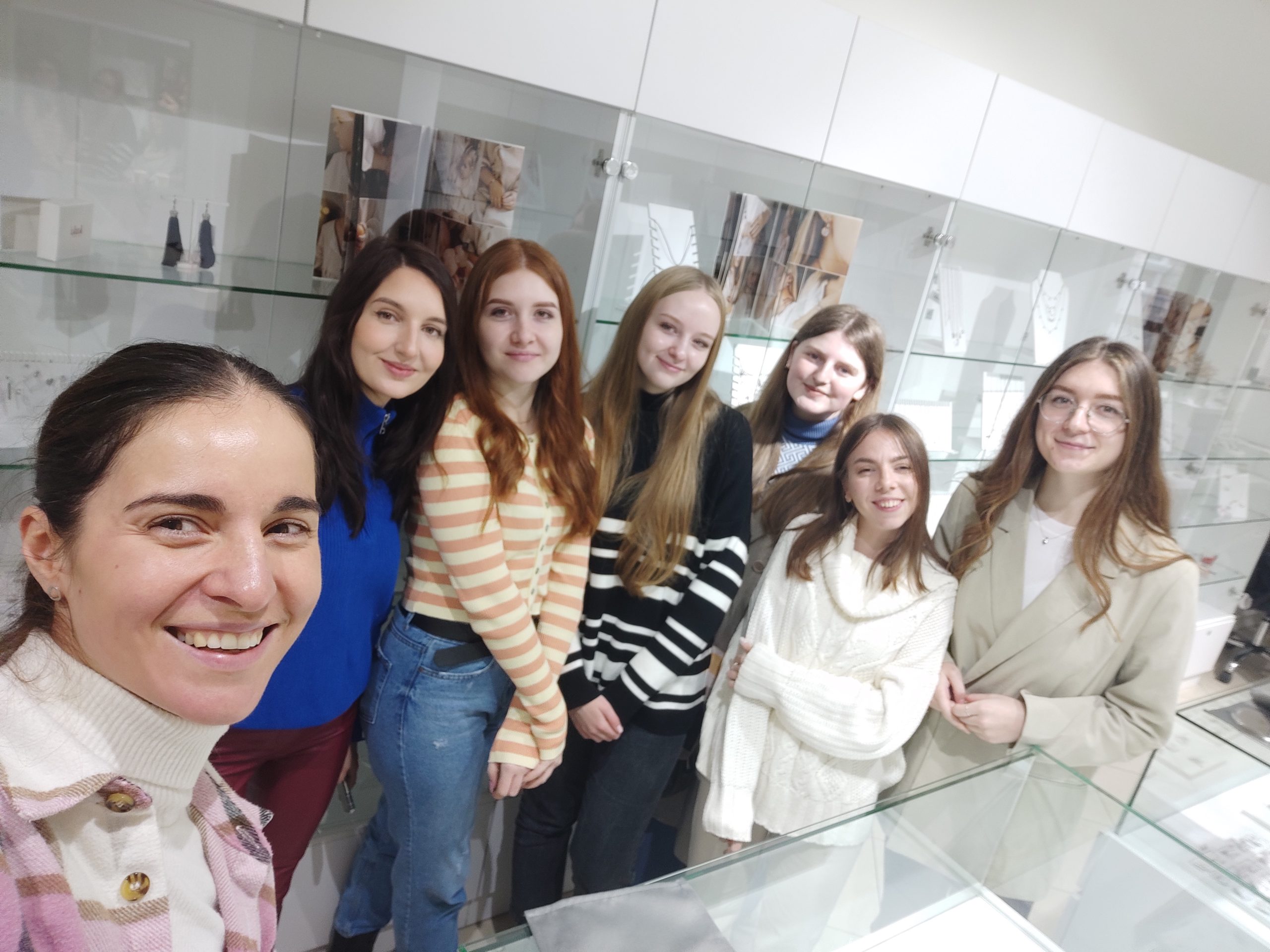
The ‘Female Entrepreneurship in Moldova – Emergency Initiative for Economic Empowerment’ (FEMEIE) program was created to provide direct support for Moldovan entrepreneurs and displaced Ukrainian entrepreneurs in Moldova, with a specific focus on supporting women. To create a comprehensive, sustainable and empowering network, the program will provide a support center in Moldova, financial support, access to global network and resources, and entrepreneurship education and training.
